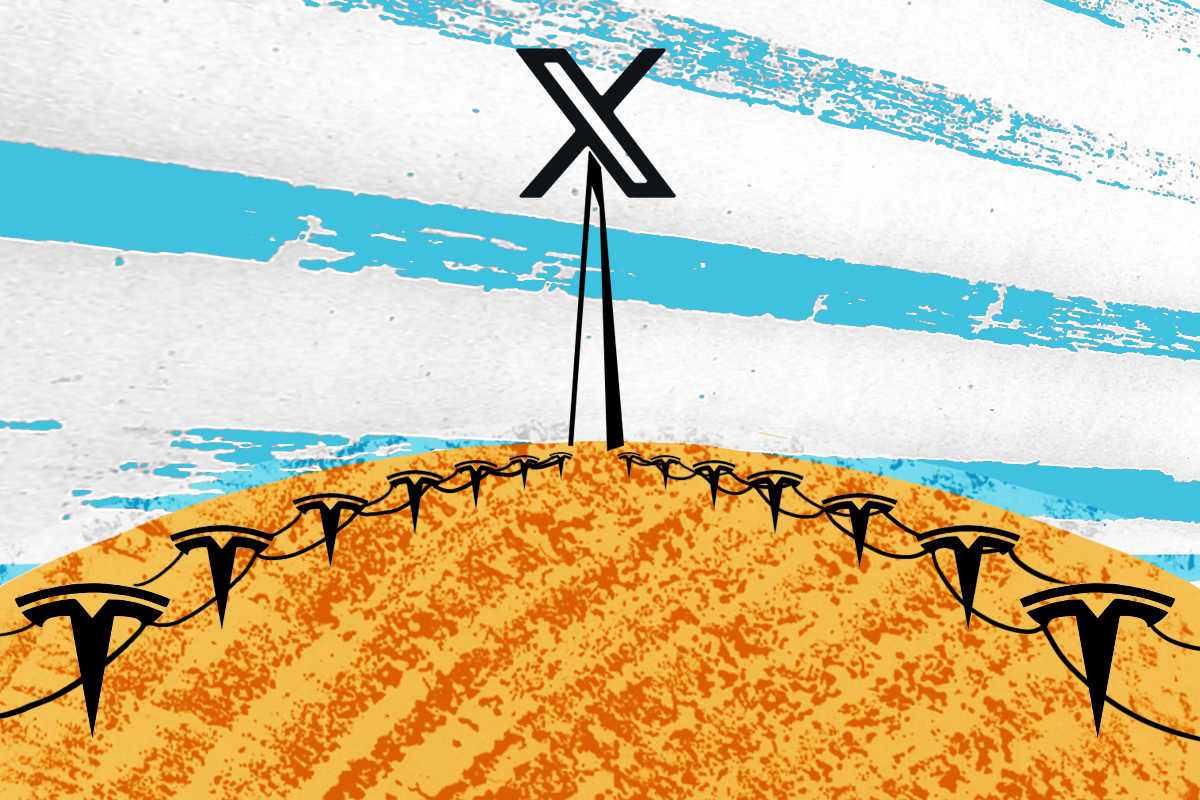
Americans do not trust the media.
They do not trust public institutions either.
Episodes of asocial behavior are on the rise. Aggression toward people of different views, shameless displays of prejudices, and violent acts are not the results of inadequate policing. Social abnormalities plague us because Americans have lost the sense of what is true and false. The distinction between good and evil has become foggy. There is ambivalence in what is right and what is wrong.
Bombarded by conflicting messages, Americans have difficulty figuring out the truth. We cannot form mutual trust without a consensus on what is the truth and what is false. Society cannot function in abstraction from the commonly accepted values. Without a moral spine, the social fabric disintegrates.
It coincides with the doomy views of the future. Gone is the once overwhelming American optimism. The times when the sky was the limit and anything could be accomplished are history. The dominating mantra is that an individual is powerless against the forces of the system.
To overcome those problems, Americans do not need to go more often to church. They do not need to listen to moralistic tirades on CNN or Fox News. Reading sermons by pundits in prominent periodicals will make no difference either. The self-proclaimed influencers on the internet can be ignored, too. Trying to become better humans by following advice from the best self-improvement gurus also misses the ball. Americans must figure out where the truth is in the deluge of conflicting messages in public conversations.
With everyone broadcasting their truth, Elon Musk claims that X, striving for absolute freedom of speech, is the solution. Let us start by asking: Does Mr. Musk know where the problem is?

Simplicity complicated
The American political system, as established by the Declaration of Independence, was straightforward; all people are equal and deserve the same rights to pursue their way of living. It was a simple, novel, and fundamentally moral concept. That approach reflected the best traditions of the American colonies. It was more a declaration of intentions, which did not mirror the political reality. Slavery was left untouched as a political compromise. America was far from perfect then, as it is today.
With all its shortcomings, the United States emerged as the worldwide superpower at the beginning of the 20th century. But not all benefited evenly from the new wealth. People with good intentions tried to make America work better. Obsessed with improving the national morale, politicians voted in Prohibition and the laws restricting the immigration of people who were perceived as undesirable.
Many reject the suggestion that those two acts turned the recession of 1929 into the Great Depression, which lasted for more than a decade. I am bringing up the history because mistakes made then are still repeated. The United States became great the first time around because the Founders understood human behavior better than today’s Americans do.
They knew that in a society founded on moral grounds, the government should focus on providing safety so the wrongdoers could not hijack the public institutions. By promoting a strongly decentralized governing structure, they acknowledged the weakness of human nature. They predicted that groups of corrupt individuals could take over a village, a county, or even a state, but not all of them at the same time. Citizens could see the difference elsewhere and remove bad people through the vote or vote with their feet.
The Founders did not invent that system. They noticed that with respect to each other, societies prosper. It is the law of nature. Humans cannot change it. Nevertheless, Americans keep trying. Prohibition and our immigration policy, which the same politicians voted in, are the classic examples.
There is not enough public knowledge about the difference between the laws that ban deeds that are malum in se (Latin for “bad by itself”) and malum prohibitum (Latin for “forbidden by decree”). Laws malum in se outlaw immoral acts that harm another individual. Laws malum prohibitum ban behavior that, by its nature, is not immoral, but the ruling authority declares it as undesirable and prohibits it by statute.
In an ideal situation, malum prohibitum rules adopt the principle of malum in se to the specific situation. Streetlights are a perfect example. Both benefits and restrictions are equal for all travelers. Even though the rules are arbitrary, no reasonable person would object to them.
Prohibition was an example of a malum prohibitum rule that many Americans found unreasonable and had no problem disobeying. Our immigration policy is another example of a law many Americans break without moral qualms. America will have freedom of expression when there are sincere public conversations about the justification for our immigration policy.
It is just one among many presently hot malum prohibitum laws needing revision. Health care is another. Then there are education, guns, policies assisting the less fortunate, abortion, racism issues, climate change, labor law, tax code, sexual minorities, and almost every regulation we face daily.
The ‘Simpsonization’ of America
Motion pictures and then TV for decades promoted an idealized America. Growing up in remote Poland, I could watch a picturesque vision of a happy and just America on our black-and-white TV. In my child’s mind, I knew it was idealization but that striving for perfection was inspiring.
Americans took it differently; they were frustrated that the reality was far less rosy than it was on TV. The Vietnam War blunder added to doubts about the greatness of the very American concept.
In 1969, the musical Paint Your Wagon glorified the American past, where imperfect people, often not doing the right things, found happiness and built a better future for themselves and others. In the same year, the movie They Shoot Horses, Don’t They? showed the drastically opposite picture. Presenting a story of despair from the Great Depression, it played up the disappointment with the status quo in America. We could see those two films as a pivot point between the glorification of America and its criticism dominant in the mass media.
I could not identify any formal rejection of the American ideas from 1776. But it seems like for the past half a century, Americans have been on overdrive trying to fix plenty of societal problems by seeking inspiration everywhere except in the ideas of 1776. I met a person teaching politics and government in a high school who, to my surprise, had not heard about Alexis de Tocqueville. The very few who still advocate for sticking to the manual as written in 1776 are seen as harmless nutcases who should not be taken seriously.
Detached from tradition, Americans fell for the abundance of -isms. Most of them boil down to petitioning the authorities to allocate money and deploy their policing powers to enforce a specific political agenda. For example, people who view abortion as immoral when they fail to convince their daughters or sisters to avoid abortions want the government to make abortion illegal.
In the movies I saw in my childhood, Americans were fearless achievers. In today’s political conversations, Americans appear decrepit; their energy seems to be directed to get entitlements from the government. Meaningfully, the federal government became much more powerful than the Founders envisioned.
The federal government has absolute control over large portions of Americans’ lives. If the federal government screws up something, like in the case of Prohibition, all Americans suffer. Today, government control over health care seems to be the case. But it is not at the center of political conversation in America. Petty substitute topics preoccupy the media and politicians.
Satirists have noted that abnormality and the mocking of forever unresolved problems have become one of the narratives in mainstream culture. In 1989, Homer Simpson was created as a caricature of what Americans were becoming. David Silverman, one of the directors of The Simpsons, described its protagonist as “creatively brilliant in his stupidity.” After enjoying the value of a good parody, Americans gradually embraced The Simpsons, not as their caricatures but as their authentic portraits. They identify with Homer.

From 2% right to 99% of the truth
Ironically, Homer Simpson and his ilk hold a grain of truth in their creatively brilliant stupidity. The other version of that maxim says that someone is correct, 2% to be precise.
For me, Twitter was always a waste of time. I signed up relatively late after encouragement from a well-informed friend, but still, I was barely active. After Elon Musk bought it, I spent more time than I should have on Twitter and later X. In my view, all American problems originate from the misinformation in the media; hence, Musk’s claims got my attention. One year ago, in an essay titled “Can Musk save Twitter?” I speculated that it is unlikely, but give it to Musk — he is unpredictable and has the means. Today, I would say the same, but we know more details.
My benefits from the time invested in browsing X and engaging in conversations still are not worth the effort. It is sad because, among the millions of participants, there is all the knowledge needed to pick up those 2% pieces of truth here and there and organize them into conclusions that are 99% true. We never get 100% of the truth; there is always some uncertainty.
Almost every time I open X, I see at least one post about X restoring freedom of speech, occasionally by Musk himself. I never saw any reflection on what freedom of speech means to him. From many posts, one can conclude that for Musk, it is reinstating at X the accounts of controversial individuals banned by the previous owners of Twitter.
With its massive audience, X and earlier Twitter are for the America of Homer Simpson and his kind. Some of them have hundreds of thousands of followers. The previous owners of Twitter shut down the accounts of several obnoxious individuals, seeing no benefit for the platform by keeping them. Good or bad, it was their business decision.
Bringing back those individuals does not restore freedom of speech in America, as Musk claims. We will have freedom of speech when we have unfettered conversations about our most inciting issues. Musk is correct, but only that proverbial 2%. To have those down-to-the-bone conversations, we need to include those hateful individuals, too. But Musk is 98% wrong that bringing a handful of controversial individuals to light increases freedom of speech.
Before arguing about hot topics of the day, Americans need to go back to the basics. What is true, and what is false? What values does America stand for, and which values does it oppose? What is good, what is evil?
Observing X, one can conclude that Musk does not realize that restoring freedom of speech requires educating Americans like Homer Simpson. It is a daunting task. So far, in my tests, Grok is talking about politics and social interactions on X the way Homer Simpson would. Fortunately, Musk can make Grok learn. If Grok’s learning is public, some X members might also learn a few things.
Musk brags a lot about the Community Notes system of verifying the truthfulness of posts on X. In that system, anonymous bureaucrats at X select, unknown to us X users, who can comment on the truthfulness of posts. The truth stays firm in the light but sways behind closed doors. If Musk used a similarly convoluted process in simplifying Tesla’s design, not even one car would ever leave the factory.
Observing Musk’s vision of freedom of speech at X, one can see that he still does not grasp the problem. He does not see that the objective is to lead and moderate genuine public conversations on a few critical political issues, preferably one at a time. He is lost in seeking millions of clicks on thousands of subjects at once.
There are no signs that Musk and his team have noticed that people change their minds not by being lectured but by being engaged in seeking the truth. When Musk bought it, Twitter had no features for members to cooperate in finding the truth. If X aspires to restore freedom of speech, it needs to develop a tool for that. Grok could be adopted for that purpose, but there are no signs that X sees a need for a feature of that kind.
Also, Musk brags a lot about X being better than other media outlets. Kindly speaking, it sounds immature. We have humongous businesses specializing in delivering the news. One can easily find up-to-date information just by checking a few websites. Yes, they are not always credible, but they do not lie all the time. They serve specific business interests and might avoid certain subjects or present them with a bias. It is irrelevant that occasionally someone posts on X a piece of information that is more accurate than what one can find in the mainstream media. The important thing is how many people can see it and when.
X is more suited to be like the Hans Andersen fairy-tale child who notices that “the emperor has no clothes.” Among the millions of X users, there is always someone who can see the twisting of the truth. If X develops a protocol for verifying and promoting those alerts, it will help restore freedom of speech.
Musk seems to understand that his quest for freedom of speech is about political power. At the time of this writing, I spotted his post: “Shifting power back to the people means taking it away from the political class and their puppets in the press.” To his misfortune, he seems to mean what he says.
The collusion between the media and politics has killed the market for ideas. None of the hot political conversations in the United States aim to identify the causes of our problems and find solutions. There are powerful money interests in keeping things as they are.
X has a choice. It can gain credibility by bleeping the condemnation of the current system, like Musk’s post above, but in its deeds, it can join the ruling political class. Then, big money will help Musk get back that $44 billion investment along with a profit. Some of the posts by Musk about immigration indicate that he might consider this path.
If Elon tries to challenge the collusion between the media and politics, big money will try to destroy him. It will not be hard because his opponents can influence the government to harm his companies. Musk will have a very narrow window of opportunity to shift the power back to the people. If he quickly overturns at least one of the current political dogmas, he will be hard to beat later. Then, he might be the first person worth trillions, which would benefit the nation.
Whether X will bring us closer to the truth is a big unknown. For math lovers: The concept of the truth on X = x. Pun intended.

 Many tell us what to think. I ask my readers to be skeptical. Question me and others.
Many tell us what to think. I ask my readers to be skeptical. Question me and others. 
